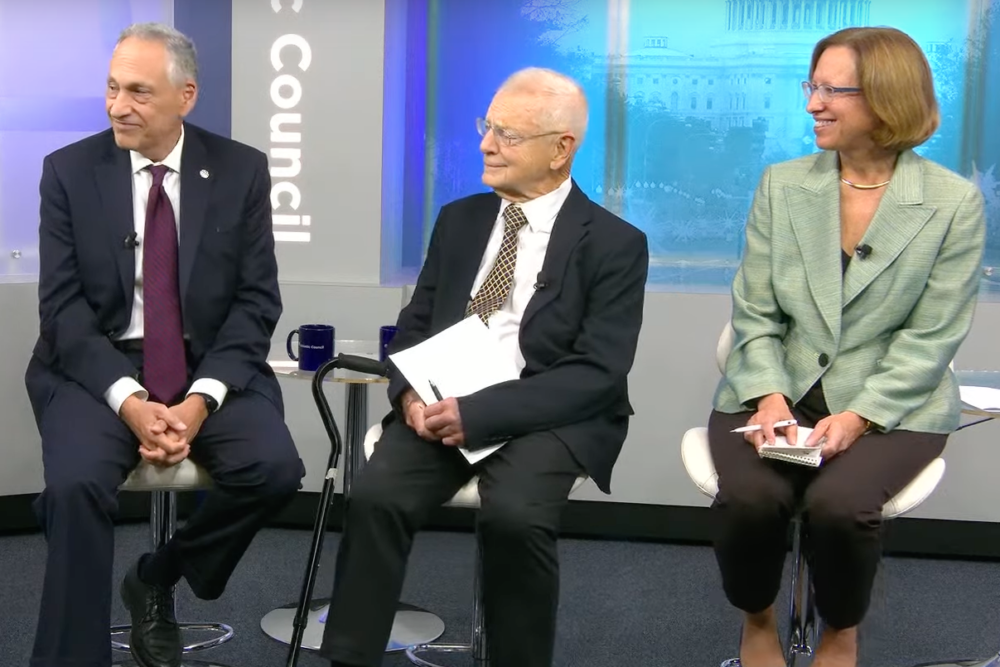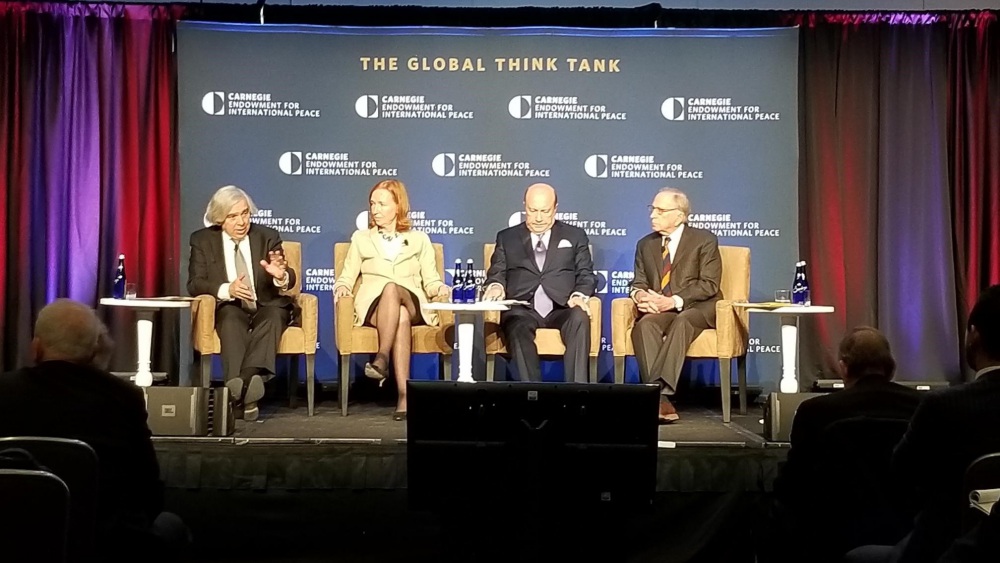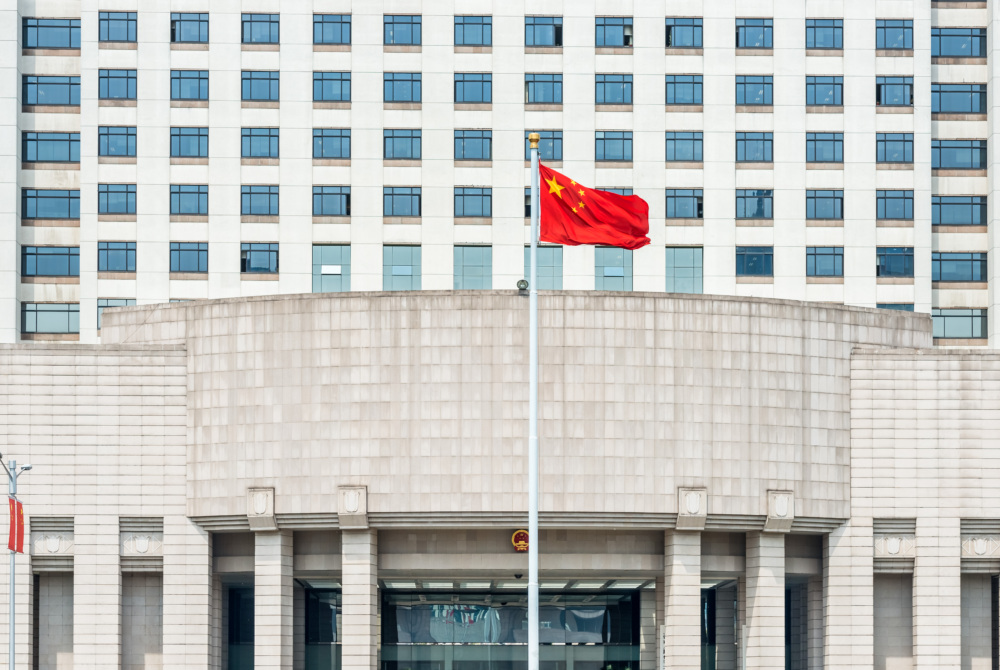This post was written by Jessica
Rogers, an intern with NTI’s Global Nuclear Policy Program. Rogers is
a graduate student in the Security Studies Program at Georgetown University’s
School of Foreign Service.
In a time of deteriorating U.S.-Russian dialogue and growing nuclear
risks, the Carnegie International Nuclear Policy Conference on Tuesday hosted
an expert panel on U.S.-Russian strategic relations led by NTI Co-Chair and CEO
Ernest Moniz.
The panelists—NTI Co-Chair Sam Nunn, German Ambassador
to the US Emily Haber, and former Russian Foreign Minister Igor Ivanov—expressed
strong concern that a lack of dialogue and cooperation is increasing nuclear
risks, and offered advice on how to improve strategic stability.
What nuclear risks are we facing?
“We are in a new era and
have not recognized it,” Nunn said. “We are much more likely to have war by
blunder, by some type of accident, miscalculations, false signal, interference
by third parties, launching missiles by mistake.” He said these kinds of mistakes
are more likely to lead to nuclear use than a deliberate, premeditated attack.
Ivanov agreed with a recent assessment by Moniz
and Nunn that the US and Russia are “sleep walking” toward nuclear disaster. “We
are living in a new reality [where] we have a lot of risks at the same time,
and it’s very difficult to enumerate them,” Ivanov said. “We are literally
moving in a minefield. We don’t know from where and when the explosion will
come, and who will suffer more from that explosion.”
What does Ambassador Haber find most worrisome? “The erosion of
the system of nuclear disarmament and nuclear arms control.” She is concerned
about the lack of a sense of urgency for arms control. Without limits on
nuclear weapons, she warned, nuclear deterrence becomes “less predictable, and
therefore gives more space to errors in assessment.”
What can we do about these nuclear risks?
Ivanov sees only one way out: For Washington and Moscow to sit
down, have a dialogue, and negotiate what to do. Recognizing the difficulty of
restarting a dialogue after a long pause, he recommends starting with simple,
common threats. “We have to start from common threats . . . step by step.”
On the use of sanctions to mitigate nuclear risks, Haber
emphasized the importance of consulting with other countries to strengthen the
effect. She further urged that sanctions should be linked to future behavior
rather than past events to enable and encourage compliance. Lastly, she
explained that “the use of the sanction instrument will only work if we, on the
other hand, expand channels where we can communicate . . . Disagreement can be
managed in a cooperative sense even if we disagree.” In addition to
U.S.-Russian channels, she highlighted NATO and the Organization for Security
and Co-operation in Europe (OSCE) as potential channels of communication.
Nunn called for presidential statements—such as Ronald Reagan
and Mikhail Gorbachev’s premise that a “nuclear war cannot be won, and
therefore must not be fought”—to change attitudes within the US and Russian
governments. He further encouraged the US and Russia to start with crisis
management, particularly in Europe and regarding Ukraine. Building on crisis
management talks, he then sees the possibility of broader strategic stability
talks between the US, Russia, and other nuclear powers in the future.
To overcome US partisanship and increase the likelihood of
passing arms control treaties, Senator Nunn recommends that Congressional leadership
establish a bipartisan group to work with the executive branch on Russia and
nuclear issues. A similar group in the 1980s, the bipartisan Arms Control
Observer Group, resulted in overwhelming approval of the Intermediate-Range
Nuclear Forces (INF) Treaty.
Last, Nunn emphasized the importance of nuclear launch decision
time for stability: “What I would rather have than any arms control agreement,
is basically a mandate from President Trump and President Putin to their
military leaders to give them more decision time.” Nunn said decision time is
also reason for concern related to the U.S. decision to withdraw from the INF
Treaty. Ground-based missiles in Europe—previously banned by the INF—would
further decrease Russian decision time. “It doesn’t take long for a missile to
get to Russia from Europe,” he said. Under the umbrella of security, Nunn said
he hopes for a successor to the INF Treaty. He suggested that such an agreement
could have a narrower geographical scope—but should still ban INF-range
missiles in Europe.




